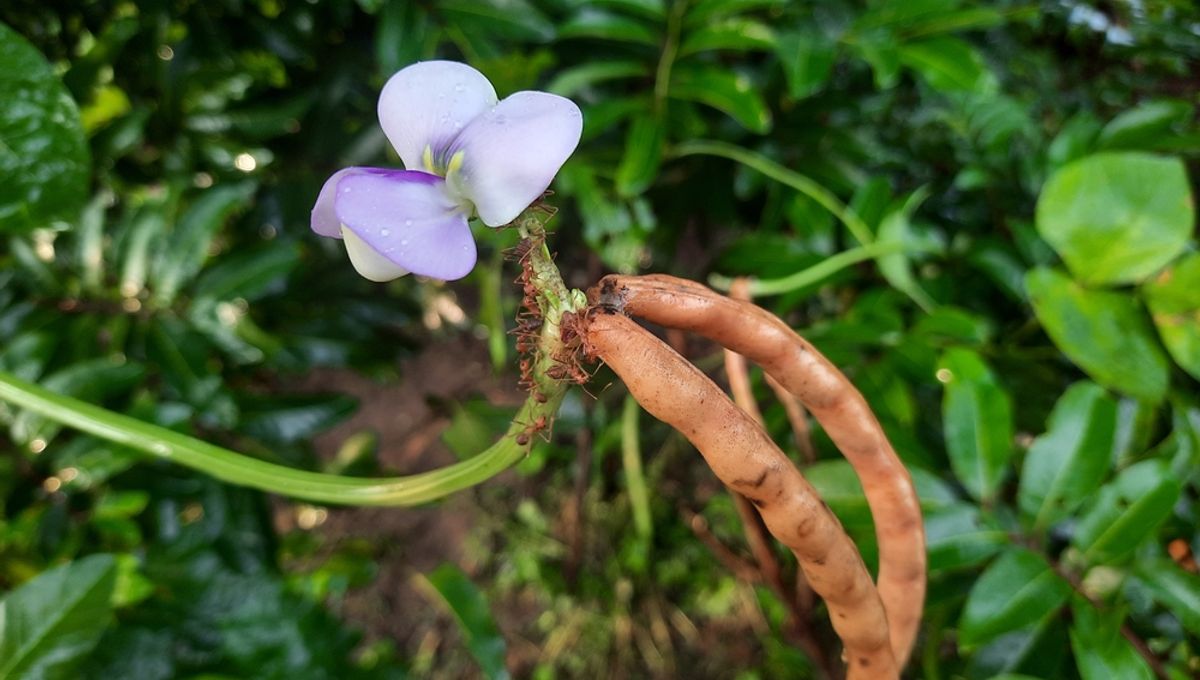
What links black-eyed peas and cancer? The cowpea mosaic virus (CPMV), which researchers believe could pave the way for a low-cost but effective new treatment option for cancer patients.
Immunotherapy is an exciting area of medicine that exploits the patient’s immune system to treat cancer. Several viruses are being investigated as contenders for immunotherapy treatments, one being CPMV, which previous preclinical studies have shown effectively target tumour cells in dogs and mice. When applied to a cancerous growth, CPMV “relieves the tumor microenvironment from immunosuppression and restarts the cancer immunity cycle,” researchers write in a study published in Cell Biomaterials.
In most cases, the body’s immune system is able to detect and destroy cells that could be malignant. But occasionally, a malignant cell can slip under the radar and go unnoticed, and continue to develop into a cancerous tumor. Previously, researchers have shown that they can reverse immunosuppression by injecting CPMV into tumors, which draws the body’s immune cells to the site of the tumor where they destroy the cancer cells – leading to “potent tumor cell killing”. At the same time, CPMV activates B cells, cytotoxic cells and T cells to create an immune memory. The result is that the immune system fights the targeted tumor and seeks out metastatic tumors in other parts of the body.
“What we found most exciting is that although human immune cells are not infected by CPMV, they respond to it and are reprogrammed toward an activated state, which ultimately trains them to detect and eradicate cancerous cells,” Anthony Omole, a chemical and nano engineering postgraduate at the University of California – San Diego, said in a statement.
It is an effect that hasn’t been replicated by other plant viruses, which begs the question – why this particular virus?
To find out, Omole and colleagues compared CPMV with another plant virus. Cowpea chlorotic mottle virus (CCMV) was chosen because it is closely related to CPMV but does not prompt such an effective antitumor response.
The team noted some similarities – both produced nanoparticles that were similar in size and both were taken up by the immune cells at a similar rate. However, there were two key differences. The first is that CPMV stimulated type I, II and III interferons (signalling proteins that help fend off infections and cancer cells), whereas CCMV stimulated pro-inflammatory interleukins (signalling proteins that protect against infection and inflammation). The second is that the RNAs of CPMV lasted longer, reaching the endolysosome where they activated toll-like receptor 7 (TLR7) – a protein that plays an important role in destroying tumors. Those of CCMV did not.
“This work gives us insight into how CPMV works so well,” said Omole. Now, Omole and the team are hoping to take CPMV to clinical trials.
CPMV may be a long way off from being used in hospitals, but if clinical trials are successful, it is hoped that it could offer an effective and relatively affordable immunotherapy option for cancer patients. Other treatment options might be tricky and expensive to manufacture but CPMV “can be grown in plants using sunlight, soil and water,” said Omole.
The study is published in the journal Cell Biomaterials.
Source Link: Virus Found In Black-Eyed Pea Plants Could Be Used To Treat Cancer